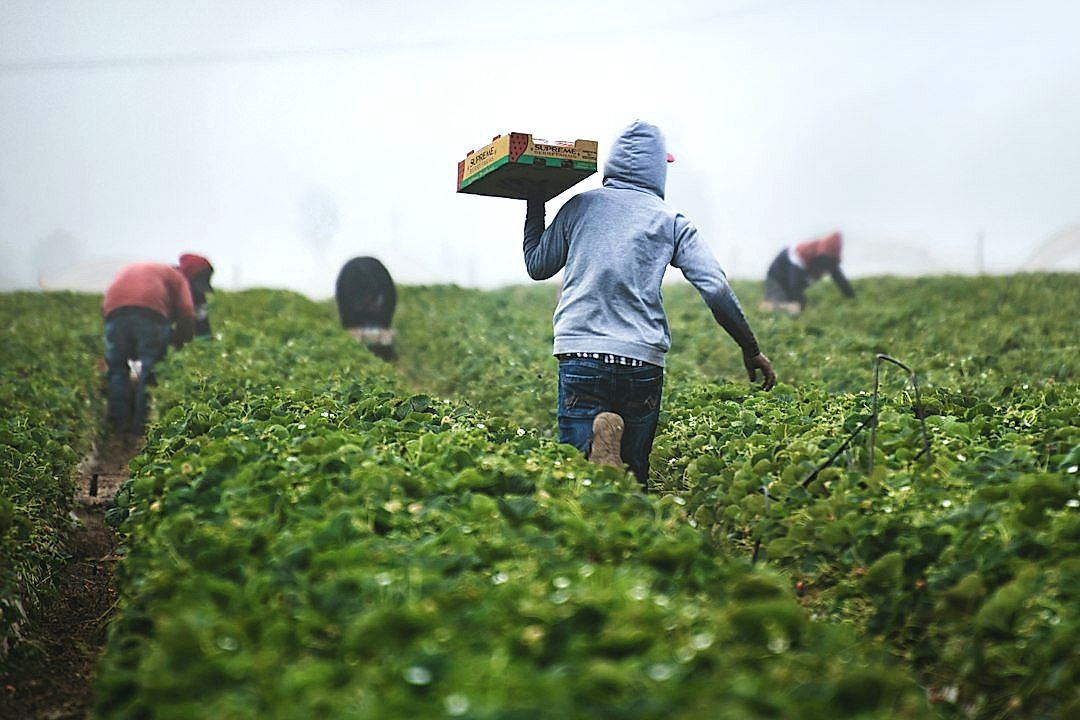Across the globe, the agriculture industry is dependent on small produce farms, often overlooked yet essential.
They play a pivotal role in sustaining local economies and preserving biodiversity.
However, these farms can sometimes struggle due to various challenges such as market accessibility, price volatility, and less negotiating power.
However, recent changes on a global scale hint towards a promising shift.
Fair trade practices, often associated with wider societal empowerment, might be the silver lining these small farms desperately need.
Through this transition, the agricultural sector can experience significant growth and subsequently, tangible benefits for the society.
Fair Trade Practices Enhancing Small Produce Farms
1. Paying Sustainable and Fair Prices to Farmers
One of the primary principles of fair trade practices is paying sustainable and fair prices to small produce farmers.
This ensures that they receive a price for their produce that not only covers their costs of production but also allows them to earn a decent living wage.
Often, farmers in developing countries are subject to fluctuating market prices, which might result in them receiving a price that is less than their cost of production.
Without a guaranteed minimum price, these farmers are left at the mercy of market forces and can face significant financial hardship.
However, under fair trade practices, a minimum price is set, which acts as a safety net for farmers during times of low market prices.
By doing this, it ensures that they do not lose money on their produce and provides them with a more stable income.
The practice of paying sustainable and fair prices is more than just an ethical choice, it is a response to the economic imbalance in the global trade system that disfavors small produce farmers.
In addition, premiums are often paid on top of this minimum price.
This additional money can be used by farmers and their communities for development projects such as improving infrastructure, education, or health care facilities.
This not only enhances the farmers’ quality of life but also benefits their communities in tangible, lasting ways.
Furthermore, when farmers receive a fair price for their goods, they are more likely to continue using sustainable farming techniques.
These techniques are often more labor-intensive and expensive than conventional methods, so fair compensation is important to ensure that farmers can afford to maintain these practices.
Thus, fair and sustainable prices are essential for a cyclical benefit.
They help farmers financially, encourage sustainable farming, and foster better living conditions for farmers and their communities.
By adhering to this principle, companies and consumers promote a more equitable trade system that values and supports the people behind the products we use every day.
Therefore, paying sustainable and fair prices to farmers not only fosters a better relationship between producers and consumers but also cradles a healthier and more sustainable world for all of us.
2. Encouraging Direct Trade to Eliminate Middlemen
Through fair trade practices, the promotion of direct trade is paramount to the success and upliftment of small produce farms.
The involvement of middlemen is often noted as a bottleneck because it can drastically reduce the income which should ideally go to the farmers.
By eliminating these costly intermediaries, the benefits from the sales of agricultural products can be more equitably distributed directly to the farmers themselves.
The promotion of direct trade provides a platform for small-farm owners to sell their products directly to consumers, thereby bypassing the additional costs incurred through dealing with middlemen.
The greater portion of profits as a result of direct trade practices can then be invested back into the farm, supporting the farm’s expansion, improvement of farming techniques and enhancing overall farm operations.
Additionally, it ensures the financial sustainability of the farming business.
Another key factor is that with direct trade, farmers gain more control over the pricing of their products, allowing them to sell at prices that reflect the true value of their products.
Undoubtedly, this empowerment of farmers has a beneficial impact on their livelihoods.
Challenges in encouraging direct trade can include logistics, marketing and sales channels.
However, with the support of fair trade initiatives, farmers can be equipped with the necessary training and resources to overcome these hurdles.
This may include support in setting up online platforms for sales, assistance in establishing relationships with customers, or helping farmers to identify potential markets for their products.
By engaging in direct trade, farmers can also improve relationships with their customers.
Customers can gain a better appreciation for the efforts put into farming, as they understand more about where their food comes from and who cultivates it.
This increased knowledge can influence a customer’s buying behavior.
Their decision to support a small farm directly can be influenced by factors such as the quality of the products and the understanding of the farming practices incorporated.
Direct trade, thereby, not only supports the financial well-being of the farmers but also builds a bond between farmers and consumers.
Ultimately, the encouragement of direct trade as part of fair trade practices greatly enhances the outlook for small produce farms.
3. Implementing environmentally sustainable farming techniques.
As part of fair trade practices, implementing environmentally sustainable farming techniques is essential to promote the longevity and viability of small produce farms.
Farms that embrace these sustainable practices are not only protecting the environment but are also ensuring better-quality products, leading to higher income for their businesses.
Sustainable farming encompasses a range of techniques that can significantly reduce the environmental impact of farming practices.
These methods may include crop rotation, drip irrigation, using renewable energy sources, and organic farming which refrains from using synthetic pesticides and fertilizers.
Planting a variety of crops, also known as biodiversity, is paramount to maintaining healthy soil and preventing pests naturally.
Composting, another sustainable farming practice, takes organic waste and turns it into a rich soil conditioner, invigorating crop growth naturally without the needs for synthesized fertilizers.
Managing water use wisely is another essential component of sustainable farming, drip irrigation is a method that can dramatically reduce water waste.
Drip irrigation, which delivers water directly to the root zone of a plant, is a highly efficient watering system reducing evaporation and runoff.
Renewable energy sources, on the other hand, can offset carbon emissions and can bring additional income if the excess power is sold back to local electric grids.
Moreover, by employing organic farming methods, farmers can eliminate the use of harmful synthetic pesticides and fertilizers, leading to healthier soil and produce, and safer working conditions for workers.
Implementing these environmentally sustainable farming techniques requires initial investment and ongoing maintenance, often not feasible for small scale farmers.
That’s where fair trade practices come in, providing additional financial and educational resources to help these farmers implement and maintain these environmentally positive practices successfully.
Not only do these methods benefit the environment and the farmers, but consumers as well are gaining access to healthier and safer products.
This is a win-win situation for all parties involved, aligning economic growth with environmental preservation, enhancing the livelihood of small produce farms while promoting ecological responsibility.
Indeed, fair trade’s commitment to environmental sustainability has enormous potential to transform farming practices worldwide, contributing to the global efforts against climate change.
4. Supporting collective bargaining and cooperative structures
The support for collective bargaining and cooperative structures is one of the many cornerstones of fair trade practices, particularly aimed at enhancing the growth and prosperity of small produce farms.
These structures create a platform for small scale farmers, allowing them to have a collective voice, power, and bargaining capacity when negotiating agreements with larger entities such as purchasers, processors, and other stakeholders.
One of the significant advantages of these structures is that they help small scale farmers overcome economic barriers that would have been difficult to tackle individually.
Through collective bargaining, farmers may negotiate more advantageous prices, secure better contract terms, and ensure that they receive a fair share of the profits generated from the sale of their produce.
Small scale farmers, when united under cooperative structures and using collective bargaining, can secure a more substantial clout in their business operations, ensuring both sustainability and dignity in their trade.
Moreover, these structures promote a sense of community and mutual support among farmers.
By working together, farmers can share resources, exchange knowledge and skills, and support each other during difficult times.
This sense of unity and cooperation can lead to stronger resilience against various economic shocks, weather and market fluctuations, and other challenges that might affect the agriculture sector.
Furthermore, cooperative structures can empower farmers by providing them with access to beneficial resources, including education, tools, and even credit.
This access can drastically improve their productivity, efficiency, and overall farm performance.
Improved farm performance, in turn, can lead to greater profits, better living conditions, and a more sustainable future for these farmers and their communities.
However, for these benefits to materialize, it is crucial that the support for these structures is adequately institutionalized and implemented.
This support comes in the form of building capacity within the cooperatives, setting up the needed regulatory frameworks, and ensuring that interests of small scale farmers are always at the heart of the decision-making processes.
The role of fair trade initiatives and organizations, in this case, is paramount to ensure that these structures are nurtured and maintained, supporting not only the farmers but the larger agricultural sector and local economies.
Ultimately, the support for collective bargaining and cooperative structures emphasizes the importance of solidarity and cooperation in not only enhancing small produce farms but also uplifting the communities these farms support.
5. Providing Pre-financing or Affordable Credit Access.
One of the key fair trade practices aimed at enhancing small produce farms is providing pre-financing or affordable credit access to farmers.
Effective access to credit services is often the key deciding factor when it comes to improving productivity and livelihood of smallholder farmers.
Most of these farmers often face financial constraints and limitations that decrease their chances of successful harvesting and trading periods.
The traditional banking systems are usually reluctant to provide these small farmers with needed credit facilities, due to the perceived high risks involved.
Pre-financing comes in as an alternative credit service, offering these farmers with the funds needed to run their farming activities before the actual production season.
This fair trade practice is aimed at levelling the playing field and providing an opportunity for smallholder farmers to compete effectively in the market.
With affordable credit access, these farmers can invest in better farming practices and technologies that increase their yield and quality of products.
Furthermore, by providing this pre-financing, fair trade practices are able to empower these smallholder farmers to control their own futures, provide for their families, and improve their living standards.
Also, this practice offers a solution to the immediacy problem, where farmers often have to sell their produce immediately after harvest at lower prices due to lack of adequate storage facilities.
With access to affordable credit, farmers can store their produce and sell at a later time when the market prices are favorable, leading to better profits.
By providing pre-financing or affordable credit access, fair trade practices not only enhance the farmers’ production capacity but also improve their negotiation flexibility when it comes to selling their produce.
This practice fosters financial stability among farmers, enabling them to plan and execute their farming activities without the constant fear of financial incapacitation.
Moreover, it contributes to the sustainability of small produce farms and plays a significant role in community development.
It is important to note that the provision of this financing should come with adequate financial education to ensure farmers make efficient use of the funds and are able to repay without straining their incomes.
Overall, providing pre-financing or affordable credit access is an important and an essential fair trade practice that significantly enhances the operation and success of small produce farms.
The Bottom Line
Ultimately, championing the rights of farmers through fair, equitable pay and the encouragement of direct trade processes that remove exploitative intermediaries, can spur significant turnarounds in the agricultural sector.
Furthermore, promoting sustainable agricultural practices not only contributes towards environmental conservation but also enhances productivity in the long run.
A robust support for cooperative structures and collective bargaining further amplifies the farmers’ voice, giving them a stronger influence over their trade.
Lastly, with pre-financed contracts or easy access to affordable credit, farmers can invest appropriately in farm inputs, thus enabling a constant improvement of their yields over time.




